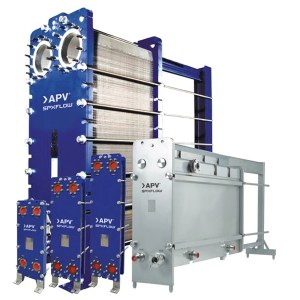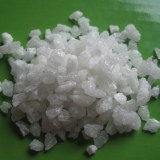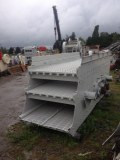Gasketed plate heat exchangers are versatile and efficient devices that facilitate heat transfer between two or more fluids. Their unique design comprises a series of plates with gaskets, forming channels for the fluids to flow through. These gaskets ensure a tight seal, preventing any cross-contamination between the fluids. The plates are specially designed with corrugations to increase the heat transfer surface area and promote turbulence.
What Is the Difference Between a Gasketed and Welded Plate Heat Exchanger?
01
Sealing Method and Maintenance
The main difference lies in the sealing method and maintenance approach. Gasketed heat exchanger use gaskets to create a seal between the plates, allowing for easy maintenance and gasket replacement. On the other hand, welded plate heat exchangers do not rely on gaskets but instead use welding to permanently join the plates together. This eliminates the need for gasket replacement and simplifies maintenance. However, in case of any issues, welded plate heat exchangers may
require more extensive repairs or replacements compared to gasketed plate and frame heat exchangers.
02
Flexibility and Adaptability
Gasketed plate heat exchangers offer more flexibility in terms of plate arrangement and customization. The number and configuration of plates can be easily adjusted to accommodate different heat transfer requirements. Gasketed plate heat exchangers also allow for handling various fluid types with different corrosive properties. In contrast, welded plate heat exchangers have a fixed plate arrangement, and customization options are limited. They are generally suitable for specific applications with consistent operating conditions.
03
Pressure and Temperature Limitations
Welded plate heat exchangers are generally capable of handling higher pressure and temperature conditions compared to gasketed plate heat exchangers. The welded construction provides a robust and secure seal, allowing for operation at elevated pressures and temperatures. Gasketed plate heat exchangers have limitations on pressure and temperature due to the reliance on gaskets for sealing.
Efficient Heat Transfer of Gasketed Plate Heat Exchangers
Gasketed plate-and-frame heat exchangers (GPHEs) with gasketed plate evaporator offer efficient heat transfer in a compact and space-saving design, surpassing the size and efficiency of traditional shell-and-tube heat exchangers.
Plate heat exchangers are specifically engineered to maximize heat transfer efficiency. The corrugated plates create a significantly larger surface area, enabling optimal heat transfer between gases or liquids.
These heat exchangers feature a flexible design that simplifies service and maintenance procedures.
Advantages of gasketed plate heat exchangers include:
(1) Precise heat transfer: Achieves a closer approach temperature, facilitates true counter-current flow, and significantly reduces hold-up volume by 80-90%.
(2) Cost-effective operation: Offers low capital investment, reduced installation costs, and limited maintenance and operating expenses.
(3) Enhanced reliability: Minimizes fouling, stress, wear, and corrosion, resulting in improved reliability and prolonged operational lifespan.
(4) Environmentally conscious: Minimizes energy consumption while maximizing process effectiveness, contributing to lower environmental impact and reduced cleaning requirements.
(5) Expandable capacity: Allows for easy capacity expansion by adding or removing plates on the existing frame, providing flexibility for future growth and changing process demands.
Plate and gasket heat exchangers deliver efficient heat transfer, cost-effectiveness, reliability, environmental responsibility, and scalability, making them a preferred choice for various industrial applications.
Localisation : Yard1, Hongye East Road, Daxing District, 102600 Beijing,
Personne à contacter : exchange plateheat, 400 088 5662







